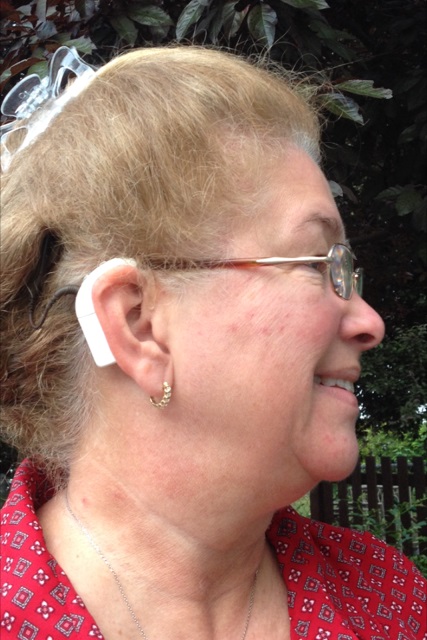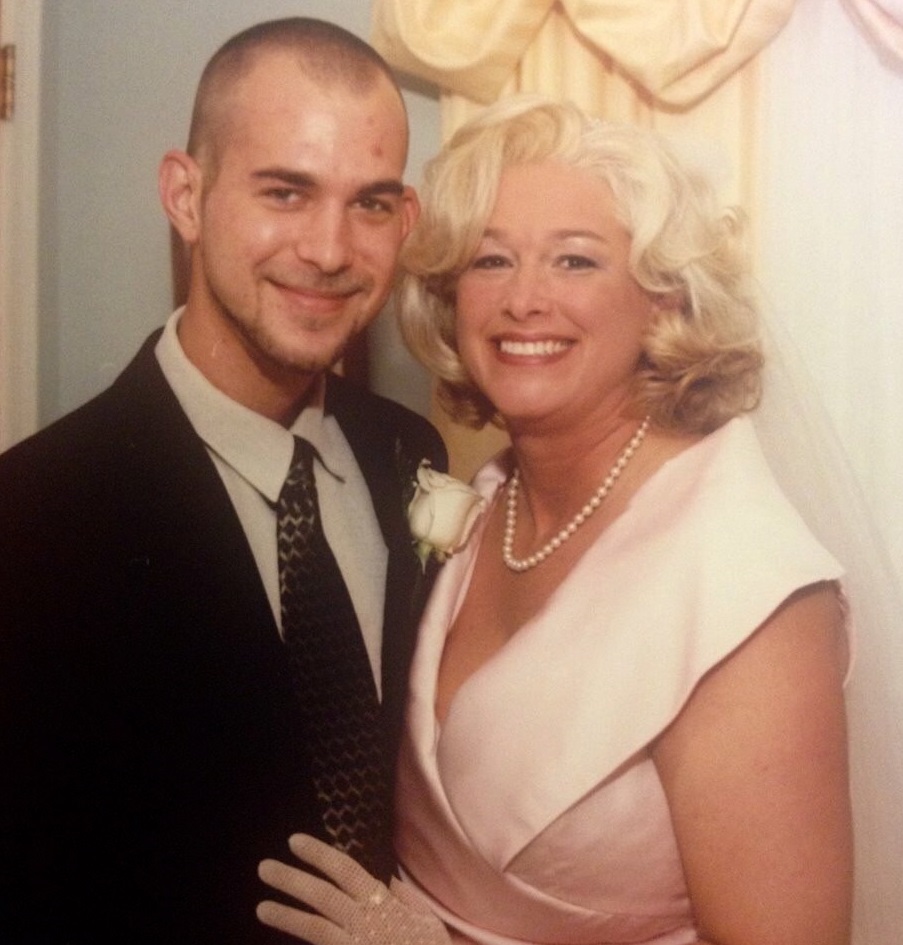 Susan H. was 35 when she began to lose her hearing. For 10 more years her hearing would decline, altering her life before she was a candidate for cochlear implants. As Susan’s life blossomed with her new cochlear implants, her son tragically lost his life. Because he was an organ donor and with the help of her cochlear implants, Susan was able to hear her son’s heartbeat again. Read on for Susan’s story:
Susan H. was 35 when she began to lose her hearing. For 10 more years her hearing would decline, altering her life before she was a candidate for cochlear implants. As Susan’s life blossomed with her new cochlear implants, her son tragically lost his life. Because he was an organ donor and with the help of her cochlear implants, Susan was able to hear her son’s heartbeat again. Read on for Susan’s story:
“I was born in April 1957. The first 35 years of my life were pretty normal. I have no family history of hearing loss.
It was in January 1995, at age 37, I had my first hearing test. I suspected I had a hearing loss because I favored my right ear on the telephone and my family complained that I was not hearing them. They were right! I was diagnosed as having mild to moderate progressive sensorineural hearing loss.
My ENT doctor and audiologist asked me about my lifestyle, did I fly airplanes? Shoot guns? Go to loud concerts, etc.? There was no explanation why I was losing my hearing.
My hearing continued to decline. I got hearing aids but continued to struggle. I was pronouncing words differently, tinnitus (constant ringing in ears) had come about, and I relied heavily on lip reading.
Frantic with fear, I asked my audiologist what I could do to prepare for the ‘inevitable’ (going completely deaf). Unfortunately, at the time, the only thing that could be done for me was to use hearing aids. My ENT suggested that I have my hearing checked every six months to check in.
During this time, I was reacquainted with a former high school classmate, Ronnie, who is now my husband, and we quickly fell in love. He’s been very supportive during the worst of my hearing loss.
In 2003, I became very proactive with my overall health. I found out about a local chapter of Self Help for Hard of Hearing (SHHH). That’s where I, not being familiar with deaf or hard of hearing community, discovered there was a state Department of Deaf and Hard of Hearing.
A state agency helped me get assisted listening devices, amplified telephone and later a captioned telephone. I now relied on closed caption for TV viewing and attending church was impossible for me to understand what was being said.
I gradually was more and more isolated from social functions, eating in noisy restaurants, dealing with my clients and family gatherings were a nightmare! My young adult children got angry and frustrated when I’d ask them to constantly repeat what they’d said. Phone calls were less frequent, which made me very sad. Straining to hear and understand caused me to be tired.
Living by myself, Ronnie would get very worried about me when I wouldn’t answer the phone after falling asleep or hear the doorbell ring, so we moved in together. One afternoon during a visit, my friend asked me if I’d ever considered getting a cochlear implant. I didn’t know what she was talking about. I later learned cochlear implants are not hearing aids, and there was something to help me even though I still had useable hearing. I thought you had to be totally deaf in order to get a cochlear implant… not true!
In January 2005, I had my hearing tested again. This test revealed that my hearing had taken a nosedive, and my audiologist finally said the words I’d been waiting for, ‘You are a candidate for a cochlear implant.’ My immediate response was, ‘OK, when can I get it?’
After medical tests to ensure that I was fit for the surgery, my surgery date was set: 05/05/05; Cinco de Mayo will always hold a very special place in my heart.
My pain from the surgery wasn’t as bad as I had expected. My head bandage made me appear much worse than I really was but I ate up all of the attention I got.
Relearning sounds
My ‘turn on’ appointment was in early June 2005. Ronnie and my mother went with me. I had no idea what to expect when my audiologist turned the external sound processor on. First, she did tones, and I could hear them! We all burst into tears. I remember before we left the audiologist’s office, I went to the restroom, and when I flushed the toilet, I started laughing aloud because I’d forgotten the sound of the water swirling around and down the toilet.
It was these simple sounds that I’d not heard in such a long time that made me smile. It was comforting to be able to hear again!
My children all came over that evening and the noise level was so crazy my nerves were a mess. Friends called on the telephone to talk expecting me to understand them instantly. I didn’t realize that my brain had to relearn the sounds I’d forgotten.
My normal everyday life was my only rehabilitation at the time. Listening to TV without relying on the captioning, listening to talk radio in the car were among some of my at home rehab aids.
After getting my cochlear implant, I was thrilled to be able to witness the birth of my granddaughter and hear her first cries. While holding her as a tiny infant, I heard the strangest ‘motor’ noise. I walked into every room trying to find the source of this ‘motor’ only to realize it was the baby’s breathing. It was like a purr. One of Grandma’s favorite moments!
I was doing so well with my cochlear implant in my one ear and was starting to struggle with the hearing aid in my other ear so I began to inquire about getting a second cochlear implant. It got approved through my insurance, and my surgery was scheduled.
When my second ear was activated, I was amazed at how ‘two ears are better than one.’ In a follow up appointment, we tested my hearing with my bilateral cochlear implants. I only missed one word and one sentence; with both ears, I had a perfect score! I am completely, 100% deaf without my cochlear implant. This is a lifelong condition that will not improve. It’s only with my Cochlear implants that I am able to hear.
Ronnie even gets to share how his quality of life has improved also by my cochlear implants.
While my life continued to improve with my cochlear implants, I was battling some hardships too.
Last August, my 33-year-old son Jordan was riding a small ATV around his neighborhood and was thrown off, hitting his head. He was unconscious and suffered massive brain injury. Jordan was declared ‘brain dead’ and kept on life support because he was an organ donor.
Jordan was a very healthy and strong man before the accident. He had five organs that were immediately transplanted upon his passing, and so far, nine people have benefited from his gifts.
I have heard from all five of Jordan’s transplant recipients and have become the closest to his heart recipient, Jerry H. We started by exchanging written correspondence and then have had phone calls and now we are Facebook friends and chat regularly.
On August 8, 2016, I got to meet Jerry in person and hear Jordan’s heartbeat again through my cochlear implants by way of a special stethoscope donated to LifeNet Health. The stethoscope is used by those who have hearing devices. Being bilaterally implanted, the traditional scope won’t work for me.
I heard Jordan’s heart beat during an ultrasound in 1981, and it was amazing to hear that heart still beat today! I know that a part of Jordan lives on and it’s because of his selfless decision to become an organ donor that the recipients of his organs have a renewed hope for a future. I’m so thankful that with my Cochlear implants I’m able to hear their stories and listen to the heartbeat and deep breaths of those recipients.”
